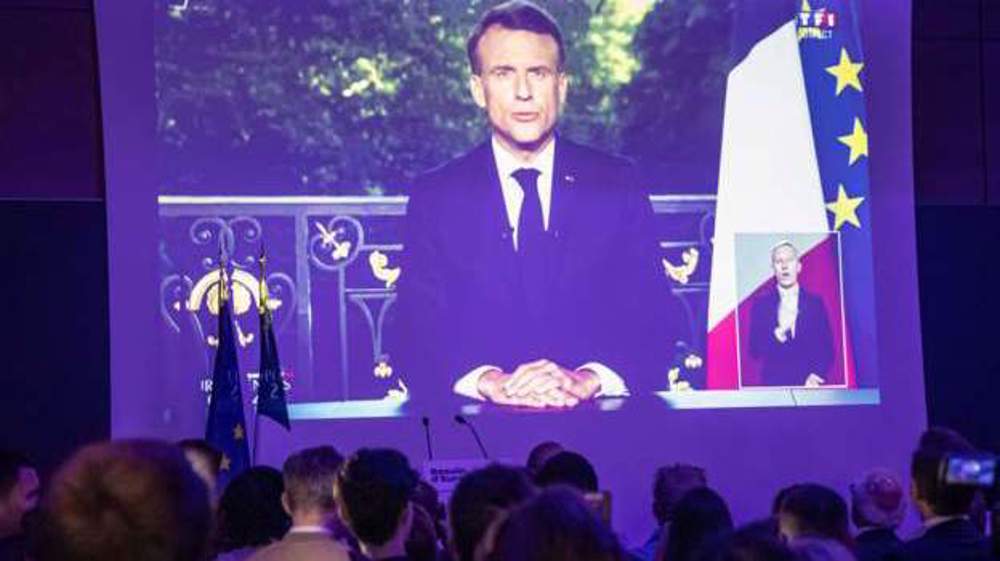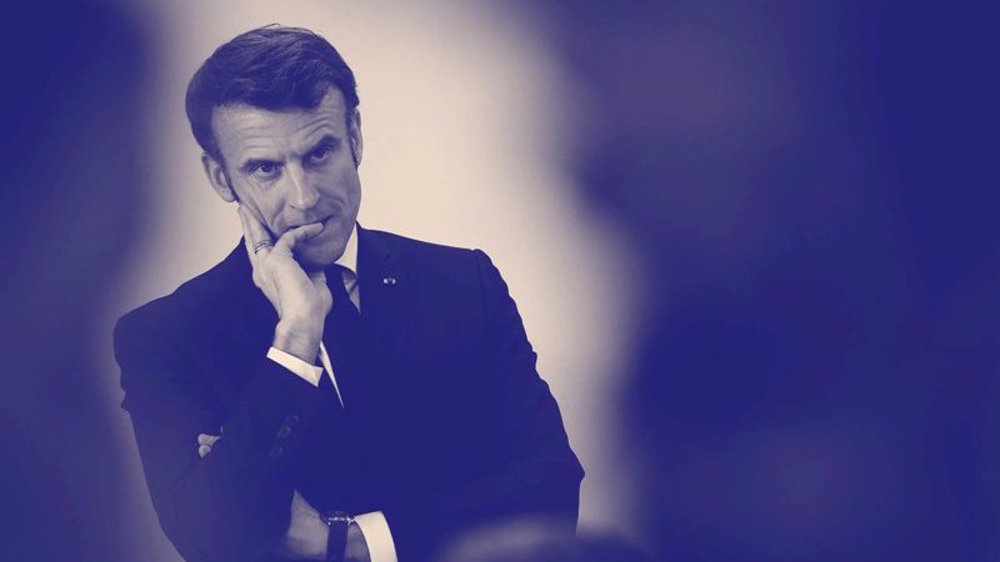Quarter million protest against far right rise across France ahead of snap election
Nearly a quarter million protesters have took part in rallies across France against the far-right, calling on fellow citizens to block it from taking power in snap parliamentary elections set by President Emmanuel Macron.
Despite rainy and windy weather on Saturday, the French Interior Ministry said it had deployed 21,000 police and gendarmes to enforce law and order at the anti-far-right protest ahead of the elections, with authorities expecting between 300,000 and 500,000 protesters nationwide.
Rallies organized by French workers’ unions, anti-racism migrant groups, and the new left-wing alliance were staged in Paris and in other cities across France including Marseilles, Toulouse, Lyon, and Lille.
In Paris, protesters held placards reading “Liberty for all, Equality for all and Fraternity with all” while chanting “Popular Front. Popular Front.”
They gathered at the Place de la Republique before marching through eastern Paris to show support for the newly-created left alliance “Popular Front” against the surging far-right ahead of snap legislative elections scheduled for June 30 and July 7.
The Popular Front consists of French left-wing groups La France Insoumise (LFI), the French Communist Party, the French Socialist Party, etc.
Macron dissolved the French parliament and called a snap election after the far-right made major gains in the European elections.
“I’ve decided to hand you back the choice of our parliamentary future with a vote,” Macron announced last week. “I am therefore dissolving the National Assembly.”
Less than a week after the sudden dissolution of parliament by Macron, France’s trade unions, associations, and the left-wing coalition by the name of “Nouveau Front Populaire” [New Popular Front] were called out to streets reclaiming the country by staging mass protests in streets across France to show muscle to depress their opponents on the far-right.
Speaking at Saturday’s rally, leader of LFI, Mathilde Panot, announced Macron’s stint in office had come to an end.
“[T]he European elections marked the ‘(period) after-Macron’. On Sunday, the ‘(period) after Macron’ began, and I believe that Macron is finished, as everyone today understands it, and so the decision that will be made on the 30th June and on 7th July with our citizens’ ballot papers, will be, either it’s them, the extreme right, or it’s us.”
Marine Tondelier, National Secretary Of Les Ecologistes (The Ecologists Party), said it was “moving” to see so many people showing support for the Popular Front alliance, which will go head-to-head against the National Rally (RN) in the snap parliamentary election, to be held over the coming month.
“[T]oday the ‘Popular Front’ must become popular, it’s that that we’re doing today, thanks also to trade unions, and it’s extremely moving for us to see what we have created in little meetings, (via) Zoom, in person, in (a group of) three or four, etc. It’s being transformed today by a tide of people in the Place de la Republique.”
Leader of the French Communist Party, Ian Brossat, said at the rally that the Communists won’t allow the right-wing politicians to gain power.
“We are here, we are here because we will never entertain the idea that these people will seize power in a country like France, because we will never entertain the idea that racism, that discrimination, on the basis of skin color, on the basis of religion, can exist in the seventh most powerful economy in the world, France.”
Also present at the protest rally was CGT Union leader Sophie Binet. She called for mass participation in upcoming elections, warning of “a deadly threat to our democracy and our freedoms and the reputation of our country in the world.”
“All it takes is for people who didn’t take part in previous elections to do so. They’ll decide. The last election saw a 50 percent turnout, so half of the French didn’t vote so people need to go and vote. They should make a conscious choice to avoid waking up with a bad hangover on July 8,” one protester at the rally said.
Macron remains in power until 2027, but he would be weakened if the RN wins and takes power over the government and domestic policy.
To ward off the new threat posed by the RN’s rise, anti-racism groups have joined French unions and the brand-new left-wing coalition to form the “Popular Front” against the surging nationalist far right in the elections.
If RN wins in the elections it will produce France’s first far-right government since World War II.
The RN was previously known as the National Front (FN) from 1972 to 2018.
It is the largest single parliamentary opposition group in the National Assembly.
The group’s candidate, Marine Le Pen, was defeated in the second round in the 2002, 2017 and 2022 presidential elections.
The RN is an anti-immigration party, advocating significant cuts to legal immigration, protection of French identity, and stricter control of illegal immigration
US fighter aircraft shot down ‘in friendly fire’ amid aggression on Yemen
Yemeni FM: Israel’s sponsors accountable for ongoing aggression on Sana’a
Eight Palestinians killed as Israel attacks Gaza school, hospitals
VIDEO | Rome, Milan host new protests in solidarity with Palestinians
Dec. 21: ‘Axis of Resistance’ operations against Israeli occupation
Spain jurists demand ties with Israel ties be cut
VIDEO | Press TV's news headlines
VIDEO | Iran honors top Science Olympiad medalists










 This makes it easy to access the Press TV website
This makes it easy to access the Press TV website